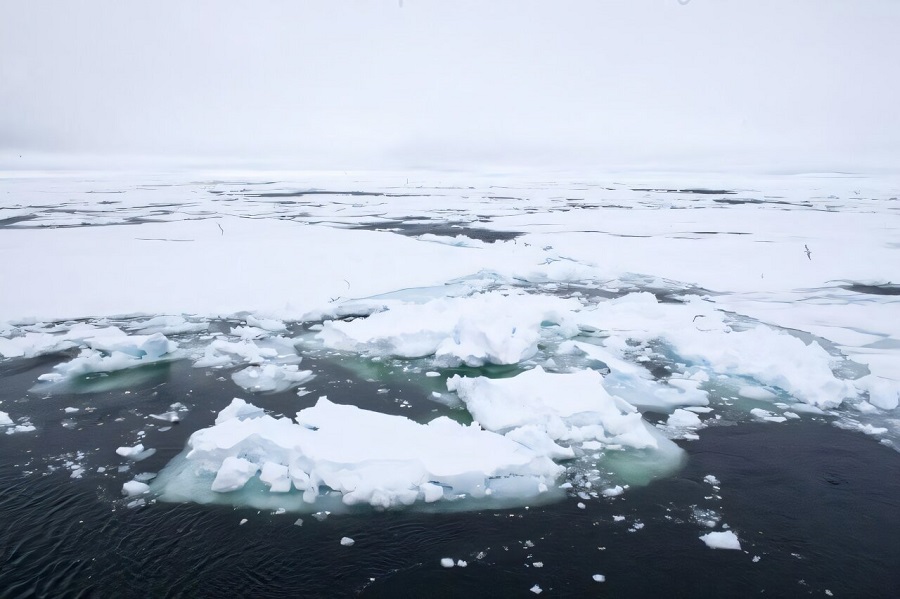11 Dec 2024

Tired Earth
By The Editorial Board

The warming climate in polar regions may significantly disrupt ocean circulation patterns, a new study indicates. Scientists discovered that in the distant past, growing inflows of freshwater from melting Arctic sea-ice into the Nordic Seas likely significantly affected ocean circulation, sending temperatures plummeting across northern Europe.
"Our finding that enhanced melting of Arctic sea-ice likely resulted in significant cooling in northern Europe in the Earth's past is alarming," says Mohamed Ezat from the iC3 Polar Research Hub, lead author of the study available open access in Nature Communications.
"This reminds us that the planet's climate is a delicate balance, easily disrupted by changes in temperature and ice cover."
Ice-free summer conditions are expected to occur in the Arctic Ocean from the year 2050 onwards.
Earlier this month, dozens of climate scientists warned in an open letter that climate change is generating a "serious risk of a major ocean circulation change in the Atlantic [that] would have devastating and irreversible impacts."
The Nordic Seas, located between Greenland and Norway, are a key area for oceanic heat transport and influence weather patterns far beyond their geographical boundaries.
During the early part of the Last Interglacial, over 100,000 years ago, global temperatures were warmer than present, ice volumes were smaller, and sea levels were significantly higher.
Mohammed Ezat's research team has now linked the warming climate and enhanced melting of Arctic sea-ice during that era to changes in regional sea-surface temperature and ocean circulation.
As the sea-ice melted, it altered the salinity and density of the water and disrupted the normal flow of currents, leading to changes in circulation patterns and heat distribution across the ocean.
Understanding the dynamics of the Last Interglacial is crucial, he explains. Past warm periods in the Earth's history underscore the importance of feedback mechanisms in the climate system. As the Arctic continues to warm and sea-ice diminishes, further alterations in ocean currents and weather patterns may occur.
Ezat's research team utilized a combination of biological, inorganic and organic geochemical tracers from sediment cores taken from the Nordic Seas. These cores act like time capsules, preserving information about past ocean conditions. By analyzing the chemical signatures within these sediments, the team was able to reconstruct past sea surface temperatures and salinity levels, sources of freshwater input and deep water formation processes.
Mohamed Ezat cautions that many questions still remain unanswered. "We can learn a lot from the still open question of the Last Interglacial cooling in the Norwegian Sea and potential responsible processes," he says. "We hope that our study provides a benchmark for climate modelers to utilize this time period to better constrain the impacts of ice changes on regional and global climate."
The study used a multi-proxy approach (diatom, dinocyst, and planktic foraminiferal assemblages, sea ice biomarkers, planktic foraminiferal Na/Ca and Ba/Ca, and benthic foraminiferal assemblages) to reconstruct the development of sea ice, sea surface temperature, deep ocean convection as well as changes in freshwater input and their sources during the Last Interglacial period.
Source : phys.org
Comment